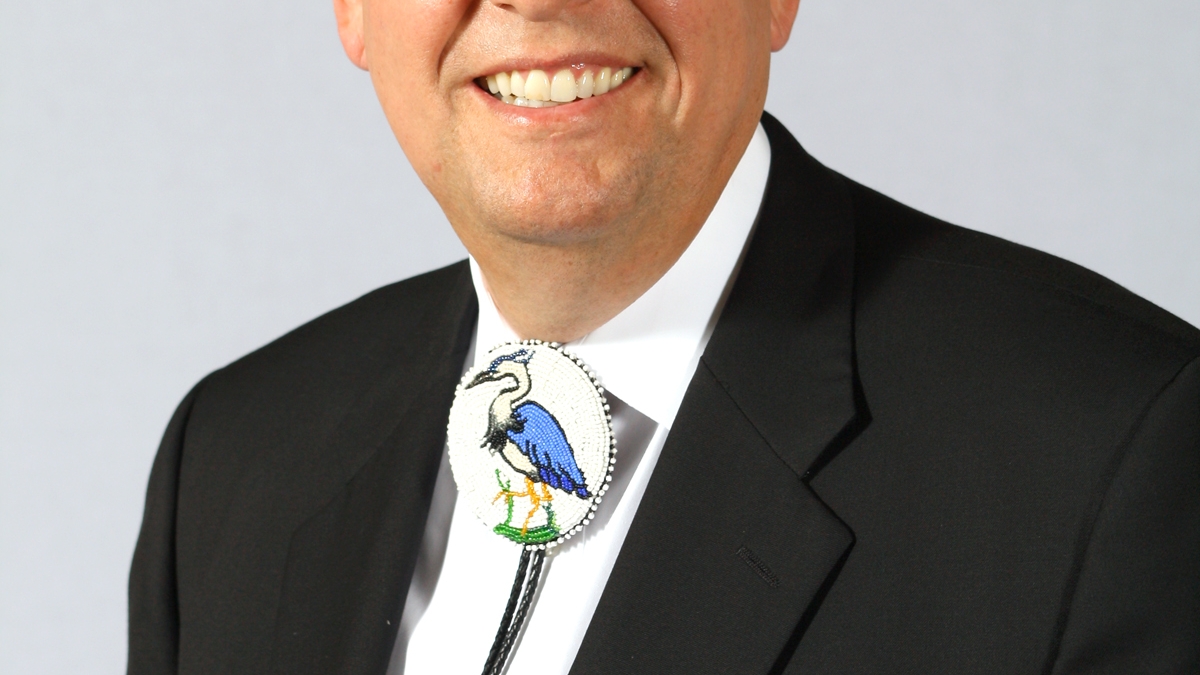Canby Lecture to explore 'Tribal National Security Strategy for the 21st Century'

Robert Odawi Porter, President of the Seneca Nation of Indians, will explore “Tribal National Security Strategy for the 21st Century,” at the Fifth Annual William C. Canby Jr. Lecture.
The lecture, presented by the Indian Legal Program at the Sandra Day O’Connor College of Law at Arizona State University, is scheduled for 4:30 p.m., Jan. 24, in the Great Hall of Armstrong Hall on the Tempe Campus.
“I will discuss the history of American Indian advocacy in defense of tribal sovereignty, the historic threats that we have faced in our struggle for survival, and how contemporary threats require new tactics and strategies to ensure the existence of tribal peoples and governments,” Porter said.
Porter said he will strive to provide tangible recommendations and strategies for those concerned about the future of indigenous nations and the preservation of tribal sovereignty.
Porter said some casual observers have a rather placid view of tribal sovereignty.
“Here in the Seneca Nation, the battles we face are on par with life and death geo-political conflicts,” Porter said. “Because of that, I believe that all Indian nations and tribes must have a ‘national security strategy’ to survive.”
Ann Marie Downes, Interim Executive Director of the Indian Legal Program, said Porter’s research and experience make him an expert on the topic.
“We are fortunate to have President Porter continue the tradition started by our first Canby lecturer of discussing important and unique issues affecting tribal governments,” Downes said. “His background as an attorney and legal scholar combined with his current experience working for and within tribal governments is sure to provide an insightful and thorough look at this topic.”
The lecture is named in honor of Judge William C. Canby Jr. of the 9th U.S. Circuit Court of Appeals, who is a founding faculty member of the College of Law. He taught the first classes in Indian law and was instrumental in creation of the Indian Law Program.
During his 20-year legal career, Porter has been one of the most energetic and provocative scholars and tribal leaders promoting tribal autonomy and sovereignty in order to revitalize indigenous nations and peoples. He is a professor of law and the dean’s research scholar of Indigenous Nations Law at Syracuse University, where he founded and directs the Center for Indigenous Law, Governance & Citizenship. He formerly served as the Senior Associate Dean for Research at the Syracuse University College of Law.
Porter graduated magna cum laude from Syracuse University with a bachelor’s degree in political science and economics, and earned his J.D. from Harvard Law School in 1989. He has authored many widely respected articles and books on tribal sovereignty, served the Seneca Nation repeatedly in various government capacities, and worked at two international law firms. He has also authored the book, "Sovereignty, Colonialism and the Indigenous Nations." He is a Heron Clan Seneca and was raised on its Allegany Territory, where he resides with his wife, Odie, and their children.
Porter was appointed the first Attorney General for the Seneca Nation of Indians in 1991, developing an in-house legal department, and later served as Senior Policy Advisor and Counsel, overseeing the Nation’s legal affairs and relations with foreign governments. He is also the Chairman of the Management Committee of Seneca Holdings, LLC, the Nation’s wholly owned venture capital firm.
Porter has served on the law faculty at the University of Kansas, where he was the founding director of the Tribal Law and Government Center, and the University of Iowa. He also has been an adjunct professor at the University of Buffalo, the University of Tulsa, and Haskell Indian Nations University. He also has served as a consultant or counsel to a variety of American Indian nations and tribes, Indian-owned businesses, federal, state, and local governments, and Fortune 500 corporations.